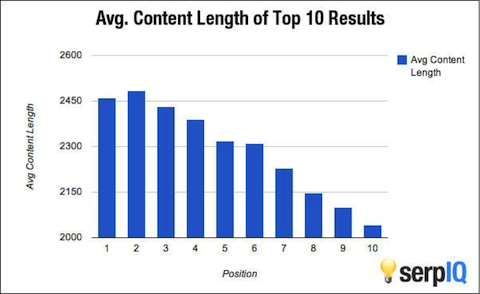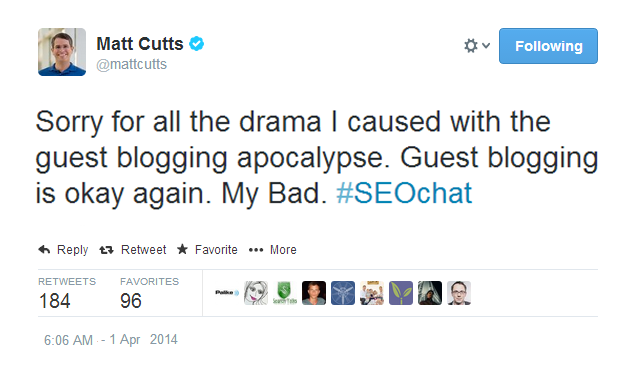Steph W. from SEOPressor


...help you check your website and tell you exactly how to rank higher?


82
score %
SEO Score

Found us from search engine?
We rank high, you can too.
SEOPressor helps you to optimize your on-page SEO for higher & improved search ranking.
By allysa on June 8, 2015
If you’ve done any research regarding SEO online, then you’ve probably noticed that in addition to all the tips and tricks everyone claims to know, there are a lot of contradicting statements about the use of SEO as well.

This is because there are a lot of SEO myths floating around, myths that you shouldn’t fall for, myths that makes us cringe every time we come across articles like that.
The following are the 10 most common SEO myths that you should be aware of:

This cry of anguish echoes across the web every time that Google releases a new algorithm. It happened when Google released, Panda, Penguin, Florida and Hummingbird Mobilegeddon and it will continue to happen.
And guess what? It’s never true. Here’s the thing – SEO is never going to just be rendered obsolete by one of Google’s algorithms. Instead, it will just become more complicated and, at sometimes, more frustrating. For example, in the early stages of SEO, keywords were all that mattered.
As long as you put as many keywords as possible into your content, your page ranking would increase. Obviously, Google didn’t like this as it diminished the quality of their search results pages. So they changed the algorithm. Now Google puts as much emphasis on social activities, high-quality content and content marketing that it does on keywords.
This made sense for Google to do since more and more content is being posted on the Internet every day, which means competition is getting stronger. In fact, it’s because of the competition that SEO will still play a vital part in online marketing and why there continues to be a growing demand for SEO agencies.
When it comes down to the bottom line, SEO isn’t going anywhere because Google needs these signals in order to accurately determine the quality of content. Check out this guide to see all Google ranking factors according to Google patents over the years.
Sure, there are “tricks” that you can do in order to boost your page ranking, but these tricks are considered black hat tactics that Google not only frowns upon, but penalizes. Real SEO is about improving content organization and the user browsing experience, which includes:
Tricks have nothing to do with real SEO. Real SEO takes effort and requires quality in order to be effective.
[bof_display_offer id=7917]
One of the biggest misconceptions about SEO is that it’s something you do to your website once and then you’re done. Anyone who thinks this is going to be in for a rude awakening as they watch their page ranking plummet over time. SEO is something that needs to be consistently worked on. The following are a few of the reasons why you need to consistently work on SEO:
The meta tag includes the title tag, meta description and keywords of a page. Many experts believed meta tags went the way of the dinosaur after the Hummingbird update. Sure, Google doesn’t use them as a factor in its page rankings anymore. However, they are still important as they not only tell search engines what your site is about, they tell users what your site is about.
Without them, users are less likely to click on your link if it shows up in their search results. This means that even if they don’t matter as much as they used to – they still matter and they shouldn’t be ignored.
The length of your content actually does have a big impact on your SEO. If you look at the average length of the content on web pages ranking in the top 10 results for any keyword on Google, you’ll see that it’s at least 2,000 words. In fact, the higher up you look on the search listings page, the more content each web page has. One of the reasons is that longer content is more in-depth than shorter content – and people are much more likely to link to an in-depth piece of content.
Here’s what SerpIQ found in their study:

For example, when emailing a link to someone, how often is it to a piece of content that’s only a few paragraphs long? Usually it’s to a large piece of content.
Length matters, and longer content performs better.
Anyone who says that social activity has no bearing on SEO must be living under a rock. Google takes into account the social signals of your content when determining its page ranking. Content that is shared, liked or commented on will be rewarded with higher page rankings. This is because Google takes social activity as a sign of quality.
There was a big uproar in 2014 when Matt Cutts announced that guest blogging no longer worked. Except that this isn’t what he said. He said that you shouldn’t use guest blogging as a way to get links. What people were misunderstanding was that he was warning against publishing poor content on other blogs as a means of improving your link building campaign. Guest blogging is no different than regular blogging – you’re posting content online.

Matt Cutts later took back what he said about guest posting and apologized.
As long as you write good content, then guest blogging is perfectly fine and can be very helpful. When you write a strong piece of content for another website, you’ll attract the attention of that website’s readers. If you’re just doing it for the link back to your webpage and the content is poor, you’re not going to be attracting any additional readers – only hurting your own reputation.
Yes, you will be redirecting visitors away from your website if you do this. But it’s only a temporary loss of traffic. By linking to authority websites, you’re showing visitors that you are willing to provide them with high quality content no matter where it’s located. If anything, this builds trust in your visitors. Not to mention that by linking to strong websites you’ll help boost your web ranking, which in turn will help bring in more organic traffic. The following are a few tips you should keep in mind when linking to authority websites:
When you link out, link out from a high-quality page of content.
Google doesn’t hate SEO at all – in fact, it depends on it to help better match high quality content to user search intent. What it doesn’t like is websites that attempt to take advantage of SEO in order to artificially boost their page rankings since this hurts the quality of Google’s search results. Embrace SEO as a way to create a high quality website and to improve your reach, not as a way to just get more traffic.
You’ve heard it so many times – “Content Is King.” It’s true to an extent, great content is the foundation of a successful online marketing campaign. However, just because you produce amazing content doesn’t mean that readers will start magically appearing to promote your content and brand for you. SEO is necessary in order to get your content the exposure it needs to have an impact.
Related Links:
[This blog post was originally written and published by Zhi Yuan on June 8, 2015. It is most recently updated by Allysa on Jun 02, 2020]
Updated: 23 February 2026


Save thousands of dollars (it’s 100x cheaper)

Zero risk of Google penalty (it’s Google-approved)

Boost your rankings (proven by case studies)
Rank High With This Link Strategy
Precise, Simplified, Fast Internal Linking.
